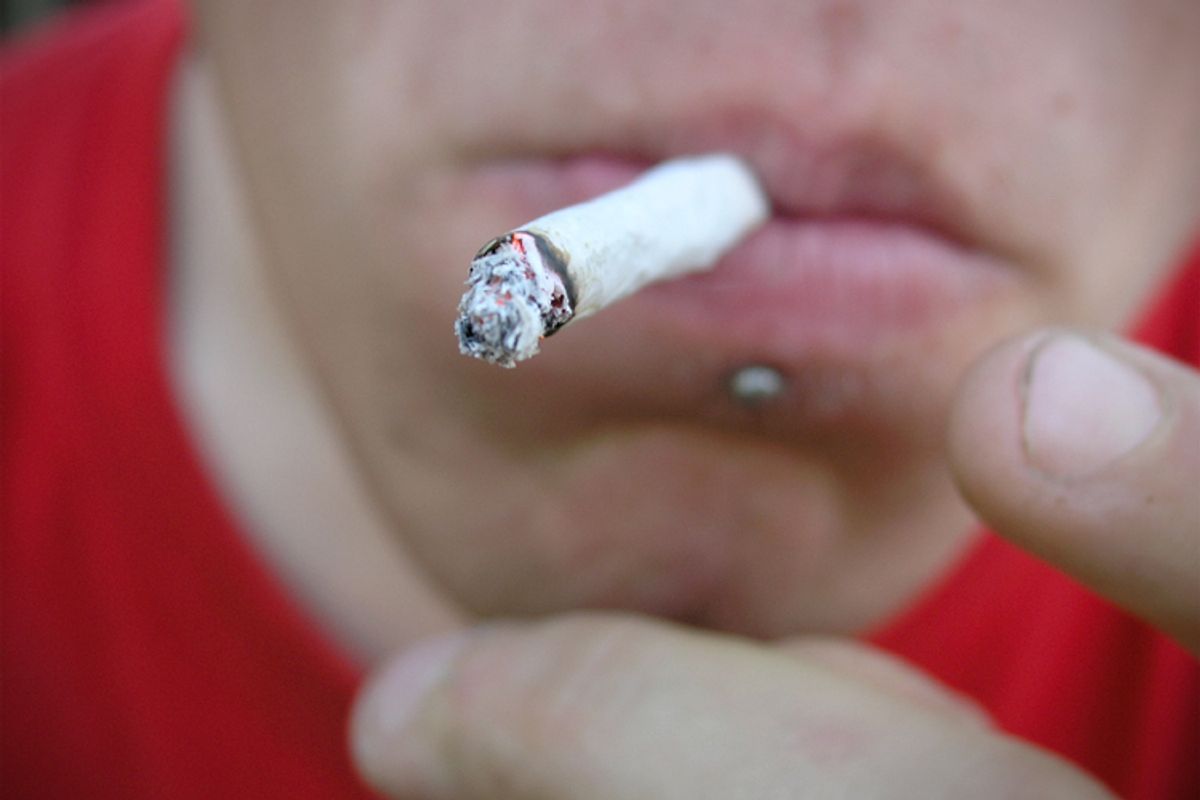A new study published in this week's Proceedings of the National Academy of Sciences (PNAS) found that teenagers who smoked marijuana on average three times every day had different brain shapes and lower IQs than nonsmokers.
"We have seen a steady increase in the incidence of marijuana use since 2007," said Dr. Francesca Filbey, director of cognitive neuroscience research in addictive disorders at the Center for Brain Health and associate professor in the School of Behavioral and Brain Sciences at the University of Texas at Dallas, in a press release. "However, research on its long-term effects remains scarce despite the changes in legislation surrounding marijuana and the continuing conversation surrounding this relevant public health topic."
Bloomberg's Kelly Gilblom reports on the study's findings:
The study adds to a growing collection of evidence that marijuana alters the young brain, just as more parts of the U.S. are decriminalizing the drug and more young people are using it. Current research indicates the brain doesn’t reach maturity until age 25 or 30, and people should hold off heavy pot use before then, said Francesca Filbey, who co-authored the study.
The data included 48 heavy marijuana users, 28 years old on average, plus 62 non-users of the same genders and ages. The research, which controlled for alcohol and tobacco use, suggested people who used frequently had increased connectivity in their brains -- possibly compensating for the effects of drug use, Filbey said.
The variations in connectivity occurred because of changes to a part of the brain called the orbitofrontal cortex. "The orbitofrontal cortex is one of the primary regions in a network of brain areas called the reward system," said Filbey in an interview with the Washington Post. "It helps us determine what is good for us and what keeps us sustained. In this case, the orbitofrontal cortex plays a role in drug use because drug use and things associated with it-- paraphernalia, for example --are associated with rewarding effects of drugs."
In this study, a smaller orbitofrontal cortex meant greater functional and structural connectivity, meaning that the brain was actually compensating for marijuana's effects. However, after about six or seven years of use, that heightened connectivity diminishes.
Previous studies have found similar results regarding youth and heavy marijuana usage. A major study in New Zealand found that people who smoked heavily in their teenage years lost around 8 IQ points between the ages of 13 and 38. Those who begin smoking in adulthood, on the other hand, don't seem to experience the same brain changes.
Although more research is needed to determine exactly how marijuana affects the brain, one message is clear: wait until you're an adult to start smoking. "We just had our first baby this summer," Matthew Smith, a research assistant professor at Northwestern University who has studied the effects of marijuana on the brain, told Bloomberg. "I would tell her if you're curious about using it, delay until your early 20s."

Shares